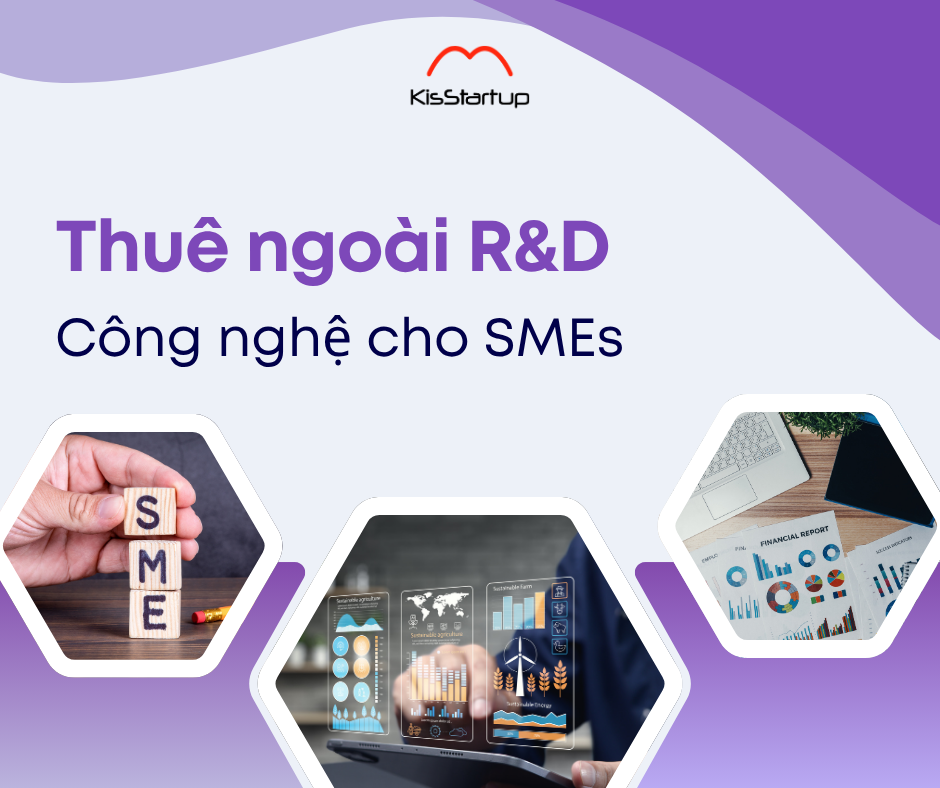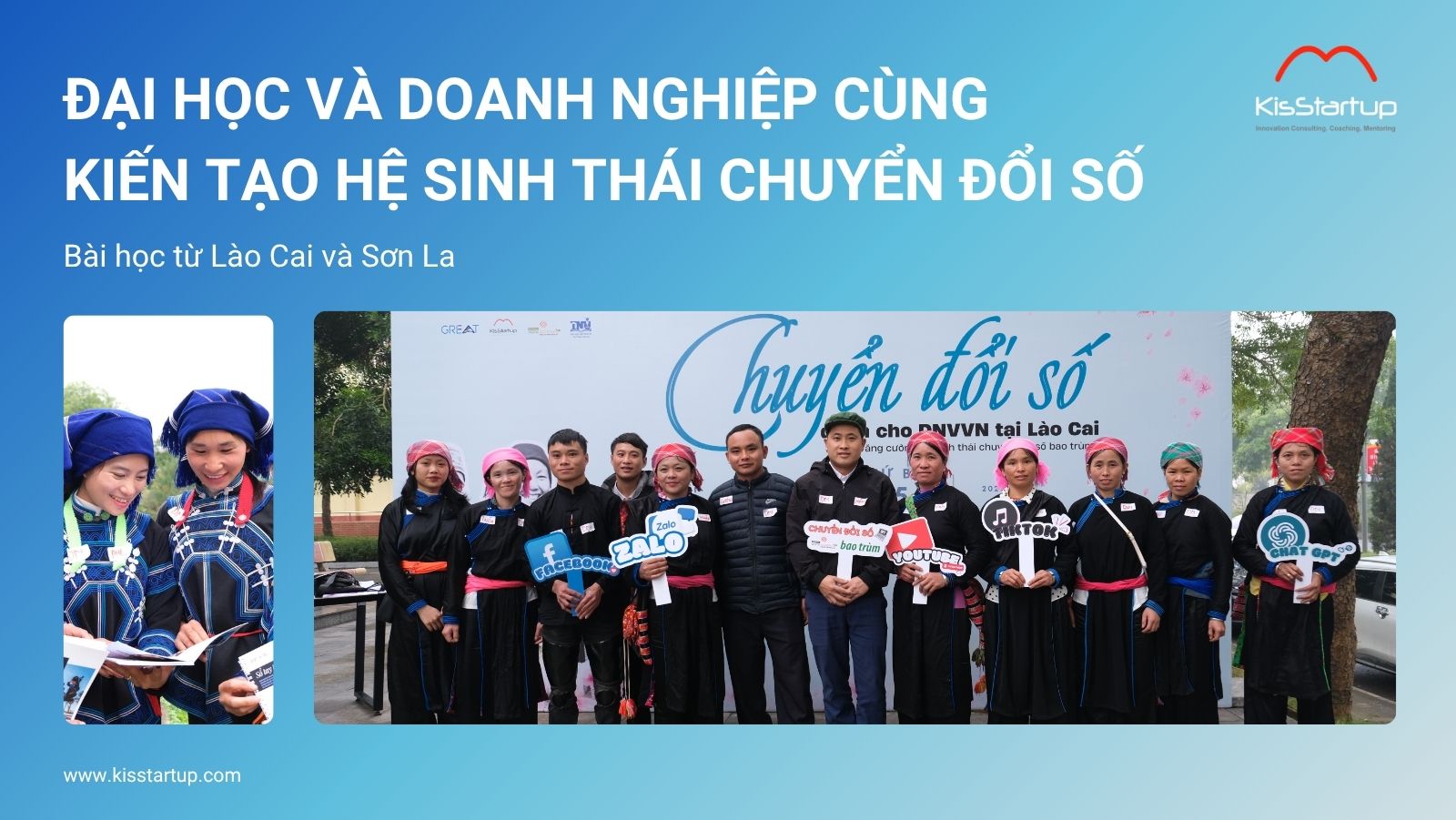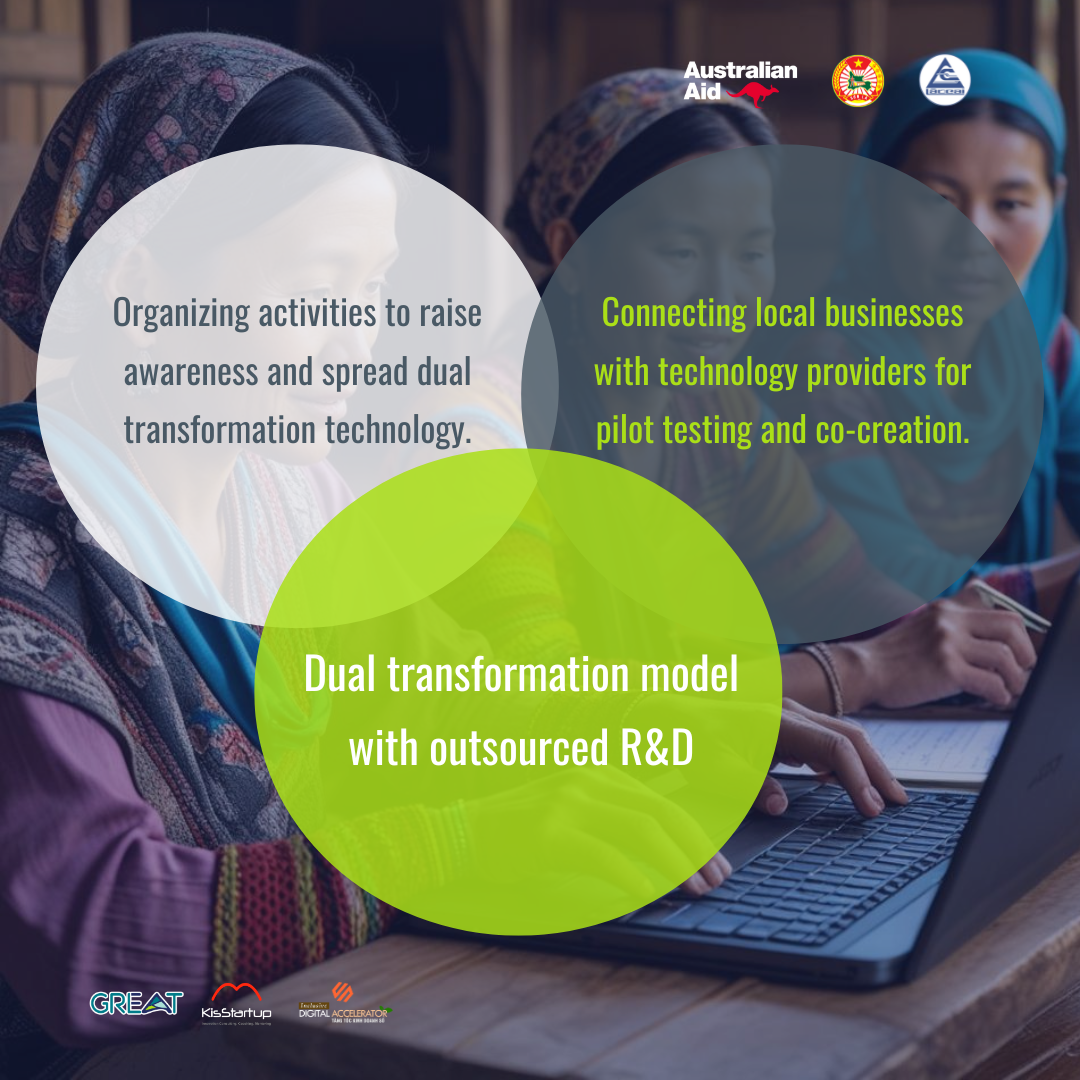Connecting for digital transformation to truly learn truly do and commit to change
The Ecosystem Connection for Digital Transformation – Teachers and Students Accompanying Businesses event organized by the IDAP Project has come to a close, leaving behind many unforgettable emotions. There was a sense of reluctance at farewell, lingering handshakes, and above all, a strong energy of determination to change—changing step by step, learning day by day, and patiently pursuing successful digital transformation.

A key highlight of the program was the challenge “Teachers and Students Accompany Businesses in Digital Transformation.” Businesses brought with them unfinished problems; lecturers, students, and technology experts sat together, experimented together, and implemented solutions together. This was no longer digital transformation on slides or in theory—it was real work, real testing, real selling, aiming for real revenue and sustainable value for local businesses.
Right at the event, solutions from ACMAN, BFD, and FCHAT were applied directly for both businesses and educational institutions. Many businesses enthusiastically began testing; many student teams entered a mode of “learning while doing.” As soon as the Hackathon opened, the very first orders appeared in a remarkably short time. This clearly demonstrated that when an ecosystem is connected in the right way, value can be created very quickly.

TikTok livestream sessions are now ready to take off at the Creative Space of Vietnam National University; lessons learned from Bát Tràng, where tradition and technology naturally go hand in hand; and exchanges with artisans and local businesses—all of these opened up a new perspective: digital transformation does not erase identity; it helps identity be told better and travel farther.
The most moving moments came from very everyday stories. During the field visit, the Director of Mường Hoa Cooperative continued to manage production remotely using only a smartphone—checking cameras, monitoring the workshop, communicating, and coordinating work in real time. She also invited students to visit the cooperative to experience beeswax painting tours as a way to promote its products and services. Digital transformation here is not distant at all—it begins with such simple actions, yet creates new management capabilities, especially empowering women, highland communities, and vulnerable groups.
At the event, many business owners bravely shared their own stories. There were trembling moments standing before the crowd, but the sharing was deeply sincere. Ms. Mã Thị Luyến spoke about the spirit of not fearing failure and not hesitating to learn; Ms. Cao Phương Thảo emphasized the need for continuous learning. These honest, down-to-earth reflections resonated strongly with many students and other businesses—because they reflect the real journey of entrepreneurship and transformation.
IDAP believes that digital transformation is not a sprint—it is a long journey. In that journey, the ability to connect is also the ability to learn. If businesses are patient and change step by step; if students commit and learn from real practice; if universities and service providers walk alongside them—then success will come, not immediately, but certainly.
We look forward to meeting again on the next stages of the journey—where together we will travel another day, gain another basket of wisdom, and continue to create digital transformation stories that are real, human, and deeply Vietnamese.
IDAP (Inclusive Digital Acceleration Program) aims to strengthen the inclusive digital transformation ecosystem for small and medium-sized enterprises, focusing on agriculture and tourism in Lào Cai and Sơn La provinces. The project is funded by the GREAT Program, with KisStartup Joint Stock Company as the main implementing partner from 2024 to 2027.
The predecessor of IDAP was the Digital Acceleration Program (DAP) for businesses, cooperatives, and household enterprises. Upon completion of the program:
100% of participants changed their business models;
100% increased revenue;
More than VND 7.2 billion in total revenue was generated through online channels across five cohorts, each lasting 10 weeks—equivalent to an estimated 300–500% revenue growth per business/cooperative compared to before joining the program.
Lecturers also recognized a significant opportunity. Dr. Trần Huy Tùng noted that this was a chance for students to realize that businesses are not distant but very close, with very real needs; at the same time, businesses could clearly see how student resources can accompany them and create value if connected properly. Several universities proposed integrating the IDAP model into their institutions, enabling students to participate more regularly in activities that carry both academic value and strong human meaning.
From Bản Liền, Bản Khảo, Bản Phụ Mẫu, Ngọc Chiến, and beyond, communities continue to write their own stories of inclusive digital transformation. Not loud, not flashy, but persistent, humble, and deeply proud.
On the buses traveling from Sơn La, from Bắc Hà – Bát Xát (Lào Cai) back to Hanoi, the atmosphere of learning spread through every conversation. “Travel a day, gain a basket of wisdom” was no longer just a saying—it became a vivid experience: learning how to make videos that generate orders, learning how to “go digital” in ways suited to mountainous conditions, learning how to move slowly but surely. Dozens of businesses generated revenue, with orders coming in steadily even while on the learning journey. Check-ins never forgot to include posts. Under the ancient roofs of Bát Tràng or in the dynamic spaces of Vietnam National University, online posts continued to generate orders for businesses.

 Upcoming TikTok livestream sessions at the Innovation Space of Vietnam National University, Hanoi; learning stories from Bat Trang—where tradition and technology blend naturally; and exchanges with artisans and local businesses all opened up a new perspective: digital transformation does not erase identity—it helps identity be told better and reach further.
Upcoming TikTok livestream sessions at the Innovation Space of Vietnam National University, Hanoi; learning stories from Bat Trang—where tradition and technology blend naturally; and exchanges with artisans and local businesses all opened up a new perspective: digital transformation does not erase identity—it helps identity be told better and reach further.






